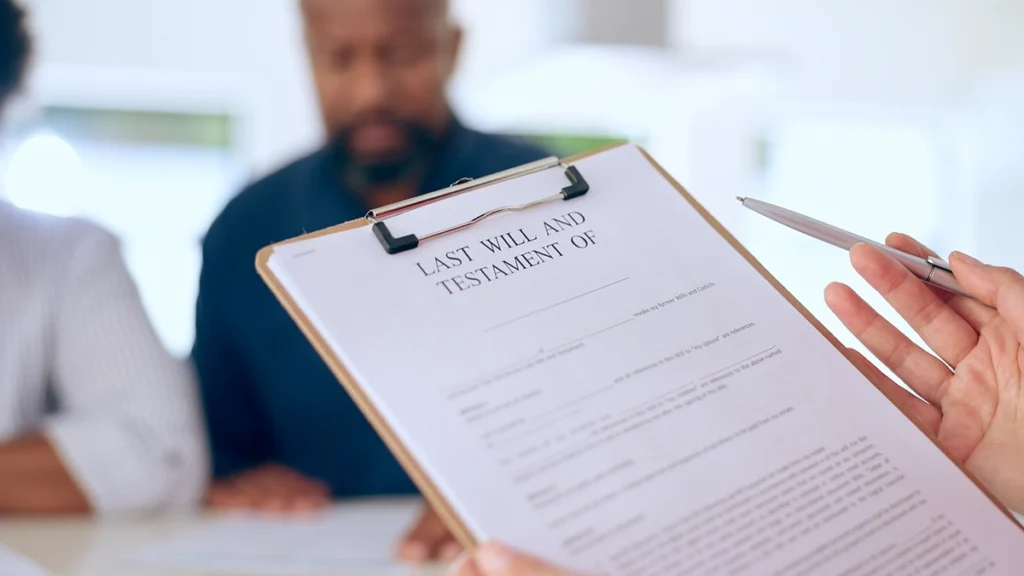If you already have a Lady Bird Deed, you might wonder if you still need a will. It’s a fair question, especially when you realize how powerful this simple document can be.
A Lady Bird Deed lets your home transfer directly to loved ones without probate, keeping control in your hands while you’re alive. Yet while it protects your biggest asset, it doesn’t cover everything else you own. That’s where a will still matters.
Together, these tools create a complete plan that ensures your home and other belongings are handled exactly the way you intend.
What A Lady Bird Deed Does
A Lady Bird Deed provides a clear path for real estate. It allows the homeowner, known as the grantor, to keep full authority over the property for life. Unlike a traditional life estate deed, which limits flexibility, this version allows the homeowner to sell, refinance, or revoke the deed without anyone’s permission.
When the grantor passes away, ownership automatically shifts to the named beneficiaries. No probate. No long waiting period. Beneficiaries usually record a death certificate and affidavit with the county, and the property becomes theirs.
This speed and simplicity bring comfort at a time when families need it most. Many parents choose this tool to help children avoid months of legal paperwork and costs.
It is important to note that a properly executed Lady Bird Deed overrides a will for the property it covers. If a will and deed name different beneficiaries, the deed prevails, reducing confusion and potential disputes.
Why Wills Still Matter
Even though a Lady Bird Deed covers your home, a will remains essential. A will manages what the deed cannot: personal belongings, vehicles, bank accounts, and digital assets.
Without one, state laws decide who inherits, which may not align with your wishes. A will also lets you name an executor and, if needed, guardians for minor children, roles a deed cannot fill.
For example, a Florida homeowner uses a Lady Bird Deed to leave her house to her daughter. When she passes, her daughter records the death certificate and becomes the owner without probate. Because she also left a will, her savings, car, and cherished ring go to her grandchildren and church exactly as she wanted. The deed and the will worked together, completing her plan.
What Happens Without A Will Or Lady Bird Deed
If neither tool exists, state intestacy laws decide who inherits property. These laws follow a default order such as spouse, children, parents, and siblings, but they ignore personal wishes.
Blended families often face unexpected outcomes, like children from a prior marriage inheriting instead of a current spouse. A Lady Bird Deed could have clarified the home’s transfer, while a will could have managed everything else.
Lady Bird Deeds And Probate
Probate is a court process that validates a will, pays debts, and distributes assets. It can be time-consuming and expensive.
A Lady Bird Deed keeps real estate out of probate, allowing beneficiaries to take ownership quickly. However, it only applies to the specific property named in the deed.
Other assets may still require probate unless properly designated. Many families use payable-on-death or transfer-on-death options for accounts and vehicles to avoid delays. When combined with a Lady Bird Deed, these steps minimize court involvement and simplify estate management.
Geographic Limits On Lady Bird Deeds
Lady Bird Deeds are available only in Florida, Texas, Michigan, West Virginia, Vermont, and North Carolina. Homeowners moving between states should review their plans since not all states recognize this deed.
In other areas, transfer-on-death deeds, living trusts, or joint ownership can provide similar benefits. The goal remains the same: keep control during life and ensure a smooth transfer later.
How A Will Complements A Lady Bird Deed
Even when a Lady Bird Deed is valid, a will completes the plan. Assets like retirement funds, business interests, and collectibles fall outside the deed’s scope.
A will directs how those are handled. If the home is sold, the will can specify how proceeds are divided. This keeps your intentions clear even as life changes.
Blended families especially benefit from using both tools. A homeowner can ensure a spouse receives the home while children inherit savings or heirlooms. The deed and will together prevent confusion and preserve harmony.
Guardianship And Personal Wishes
A will also expresses personal wishes. It can assign heirlooms, photos, or gifts to specific people. These may not hold great financial value but carry emotional weight.
Without guidance, such items can cause family conflict. A will also allows charitable gifts or support for friends, which a Lady Bird Deed cannot do. Used together, the deed and will protect both the home and the personal details that define a legacy.
Common Misconceptions About Lady Bird Deeds
“If I have a Lady Bird Deed, I don’t need anything else.” The deed only covers the real estate named in it. A will still handles personal property, guardianship, and executorship.
“A Lady Bird Deed and my will conflict.” They do not. The deed governs the home. The will governs everything else. Used together, they provide clarity.
“Lady Bird Deeds work everywhere.” They are recognized in only six states. Other states use similar tools to achieve the same purpose.
“A Lady Bird Deed cannot be changed.” It can. The homeowner keeps full control and can modify or revoke it anytime.
“A Lady Bird Deed removes all debts or taxes.” It avoids probate but does not eliminate valid debts or taxes. Planning ahead ensures beneficiaries are not caught off guard.
How Families Use These Tools Together
Families who use both a Lady Bird Deed and a will often find peace of mind. The deed ensures the home transfers quickly. The will fills every other gap.
For example, siblings inheriting from their mother received the home instantly through her deed, while her will divided other belongings and named one sibling to manage paperwork. Everything went smoothly, and everyone felt respected.
Flexibility During Life
The Lady Bird Deed’s greatest advantage is flexibility. Traditional life estate deeds limit a homeowner’s freedom to sell or change beneficiaries. This deed allows full control while alive.
That flexibility is invaluable when relationships, finances, or goals shift. A will cannot adapt in real time since it only takes effect after death. Used together, the deed and the will protect both present and future needs.
Limitations Of A Lady Bird Deed
A Lady Bird Deed is not a full estate plan. It does not manage financial accounts, investments, or personal property. It does not appoint guardians or executors.
Without a will or other planning tools, families may still face probate for other assets. Many people take a layered approach: use the deed for real estate, beneficiary designations for accounts, and a will for everything else.
How Families Benefit From Both
When combined, a Lady Bird Deed and a will create balance. The deed provides a fast, simple home transfer. The will ensures that the rest of the estate follows your wishes.
This partnership minimizes conflict, saves time, and strengthens family security. Together, they turn estate planning into an act of care rather than complexity.
Key Takeaways
- A Lady Bird Deed transfers a home outside probate but covers only that property.
- When properly executed, it overrides a will for that property.
- A will remains essential for personal items, accounts, and guardianship.
- Lady Bird Deeds are recognized only in Florida, Texas, Michigan, West Virginia, Vermont, and North Carolina.



